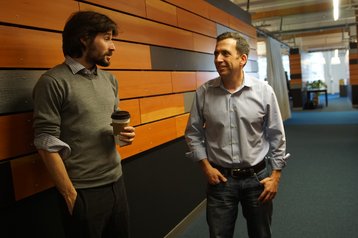Docker, the start-up that manages the eponymous open source project, has secured $95 million in additional funding.
Docker technology enables developers and administrators to run applications on Linux in compact virtual containers, as opposed to dedicated virtual machines.
CEO Ben Golub said the money is more luxury than necessity – it will pay for new platform capabilities and enable deeper integration with go-to-market partners such as AWS, IBM and Microsoft, who have already made strategic product investments in support of Docker technology.
“We are getting a clear message from the market that they like what we are building, and we plan to keep building it. The financing enables us to deliver on that promise,” added Solomon Hykes, founder and CTO of Docker.
Bigger ambitions
Docker was launched in March 2013, offering an open platform that enables any application to be created and run as a collection of consistent, low-overhead ‘containers’ that work across virtually any infrastructure.
These containers could replace VMs in many scenarios where high speed and low cost are more important than advanced orchestration features, and are an especially good fit for DevOps methodology.
Docker’s existing customers include the BBC, Groupon, ING, Spotify and Goldman Sachs, who’s also an investor.
“When our engineers discovered and started using Docker’s open source platform, they were immediately impressed by the portability it provides applications,” said Don Duet, global co-head of the Technology Division at Goldman Sachs. “It inspired us to move towards a standardized infrastructure for packaging, shipping and running our applications based on Docker technology.”
The company attracted $40 million in a Series C round in September 2014, and the latest round brings its total funding to $150 million, thanks to strong support from existing investors.
In a blog post on the Docker website, CEO Ben Golub said the start-up “doesn’t have an imminent need for additional financing” but the money will help ensure it can keep up with the rapid growth of the Docker ecosystem.
“Whatever seemingly ambitious goals Docker set at the time of the last round have been dwarfed by what the Docker ecosystem has delivered in terms of usage, product innovation, partnerships, and in mainstream enterprise adoption. Raising a large round now helps ensure we can respond to what the past seven months have brought and whatever the next several years may bring,” said Golub.
Docker’s flagship commercial product, Docker Hub Enterprise, is being beta tested by a number of Fortune 100 companies and will be made generally available later this quarter.

